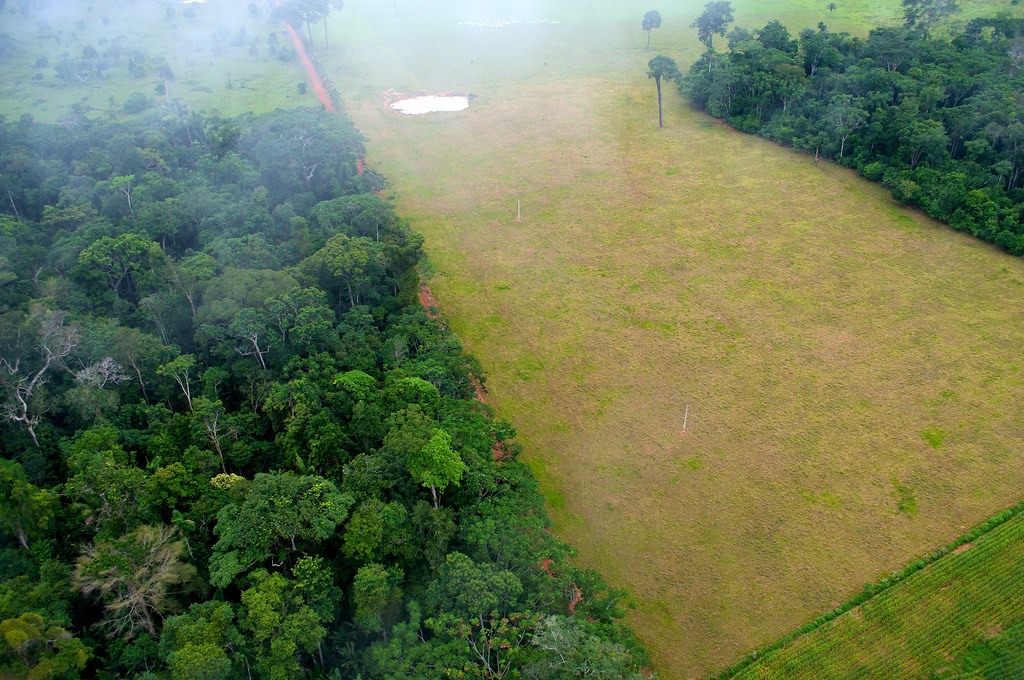What Lula’s victory in Brazil should mean for the EU-Mercosur trade deal
Greenpeace | 2 November 2022
What Lula’s victory in Brazil should mean for the EU-Mercosur trade deal
by Lis Cunha & Thais Bannwart
After Bolsonaro, the European Commission, as well as some governments and industries in Europe will see an opportunity to push through the EU-Mercosur trade deal. But the agreement would be the exact opposite of what the Amazon needs, write Lis Cunha and Thais Bannwart.
Luiz Inácio Lula da Silva has been elected the next President of Brazil, narrowly defeating incumbent Jair Bolsonaro.
Bolsonaro’s government eroded democracy, threatened the survival of Indigenous Peoples and fueled Amazon destruction in Brazil. In order to end deforestation, respect human rights, and support Amazon communities, President-elect Lula will need to radically reverse the dismantling of environmental protections that took place over the past four years, and shift Brazil away from the destructive economic strategy that accelerated under Bolsonaro.
Now is the time to allow the Amazon rainforest to heal from destruction it has suffered. Yet the trade deal which the EU now wants to push through with Mercosur would do the exact opposite. The agreement between the EU and Mercosur (Argentina, Brazil, Paraguay and Uruguay) and negotiated with Bolsonaro will exacerbate the climate and nature crisis. The whole point of the deal is to increase trade in agricultural products like meat and soy, chemicals like pesticides, and fossil-fueled cars. By encouraging more and cheaper – rather than less – consumption of such damaging products, the deal is in direct opposition to the goals of the European Green Deal. The devil is not just in the details: the whole agreement is set up to take us backwards on climate action and nature protection.
Even with a new government in Brazil, an urgent rethink about the EU-Mercosur trade agreement remains absolutely necessary. Without a radical rethink, the deal will drive the continued destruction of the Amazon and other vital ecosystems, accelerating the climate and nature crisis.
President-elect Lula has expressed concerns about the deal. In his victory speech, he emphasised that he wants fairer trade and is not interested in trade agreements that condemn Brazil to “the eternal role of exporter of commodities and raw materials”. Throughout his election campaign, Lula indicated he wants to renegotiate the text with the EU.
But truly fixing the agreement would require a major overhaul. To protect nature, the climate and the human rights of Indigenous Peoples, the EU and Mercosur countries need to turn the deal on its head, and put environmental and social concerns at the centre. The European Commission’s current intention to address the sustainability loopholes of the EU-Mercosur deal via an “additional instrument” of interpretative nature is a sham process, unable to fix the serious shortcomings of the agreement.
A complete renegotiation of the EU-Mercosur text is needed if decision-makers are serious about sustainable trade. The time to act to protect nature and climate is now: policy-makers on both sides of the Atlantic must reject any EU-Mercosur deal which spurs forest and ecosystem destruction and goes against the socioecological transition we urgently need.
Lula’s victory offers the unique chance to review the entire agreement putting environmental and social concerns as a priority. The Amazon is too close to its tipping point for economic interests to be prioritised over its protection.
There is no trade on a dead planet.
Lis Cunha is a trade campaigner at Greenpeace Germany.
Thais Bannwart is a public policy campaigner at Greenpeace Brazil.






